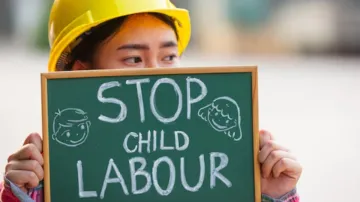Every year on June 12, the World Day Against Child Labour serves as a reminder of the millions of children worldwide who are forced into labour instead of receiving an education and enjoying their childhood. In 2024, with the theme "Let’s Act on Our Commitments: End Child Labour," the focus remains on eradicating this global issue and creating a fair economy where children are protected and nurtured.
On World Day Against Child Labour 2024, here are five actions we can take to make a difference:
1. Education for All
Access to quality education is key to breaking the cycle of poverty and child labour. Governments and communities must prioritise making education accessible and compulsory for all children, regardless of their socio-economic background. Investing in schools, teachers, and educational resources ensures that children have the opportunity to learn and develop the skills they need for a brighter future.
2. Strengthening Legal Frameworks
Enforcing strict laws against child labour is essential for protecting vulnerable children from exploitation. Governments must strengthen their legal frameworks, including setting minimum working ages, regulating working conditions, and implementing penalties for those who employ children illegally. By holding perpetrators accountable, we can create a safer environment for children to thrive.
3. Supporting Livelihoods for Families
Poverty is a driving force behind child labour, as families often resort to sending their children to work out of desperation. By providing economic support and opportunities for parents, such as job training, microfinance initiatives, and social welfare programmes, we can empower families to sustain themselves without relying on their children's income. Investing in community development projects and sustainable livelihoods uplifts entire families and reduces the need for child labour.
4. Corporate Responsibility
Businesses play a significant role in combating child labour by ensuring ethical practises throughout their supply chains. Companies must adhere to international labour standards, conduct regular audits, and collaborate with suppliers to eliminate child labour from their production processes. Consumers can also make a difference by supporting brands that prioritise ethical sourcing and transparency, thereby creating demand for responsible business practises.
5. Raising Awareness and Advocacy
Raising awareness about the detrimental effects of child labour is crucial for mobilising action and generating support for change. Governments, NGOs, and civil society organisations must collaborate to educate communities about children's rights, the importance of education, and the consequences of child labour on individual lives and society as a whole. Advocacy efforts, such as campaigns, events, and media outreach, amplify the voices of affected children and advocate for policy reform on a global scale.
On this World Day Against Child Labour, let us reaffirm our commitment to ending child labour and building a fair economy where every child can grow up safe, educated, and free from exploitation. By taking these actions together, we can create a world where childhood is protected, and every child has the opportunity to fulfill their potential.
ALSO READ: When is World Day Against Child Labour 2024? Know date, theme, history, significance and more
